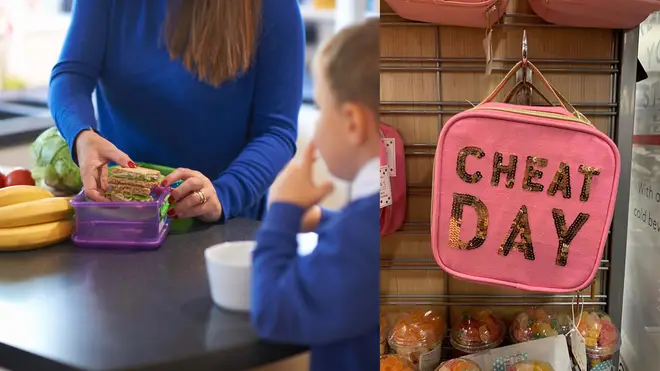Mum slams 'cheat day' lunch box aimed at kids saying it promotes diet culture
12 February 2019, 10:49

A mother took to Facebook to rant about a bizarre sequinned 'cheat day' lunchbox aimed at kids.
A mother has taken to Facebook to slam shops for promoting diet culture to kids after she spotted a packed lunchbox which spelled 'cheat day' in sequins.
Blogger Sonni Abatta slammed the product which she said she spotted in a popular departments store marketed towards little girls.
Read more: Parents claim Peppa Pig is causing their kids to 'snort' in public!
Taking to the social media site to rant she said: "I am SICKENED that this phrase is on a lunch box."
See this? This is a picture I snapped today of a little girl's lunchbox that I saw for sale at a popular department...
Posted by Sonni Abatta on Sunday, 10 February 2019
She continued: "Our world is telling our girls that it's "cheating" if they eat something that's not 100% fat-free and perfectly healthy. In turn, that tells them that self-control and denying herself is to be valued above all. And that if she dares to step outside of the foods that will keep her perfectly slim and trim, then she is by default "cheating" and needs to feel some sense of remorse."
The phrase 'cheat day' is heavily used in the world of fad dieting to refer to a day where you eat things you wouldn't normally allow yourself when following a diet plan, and rightly so, Sonni is upset to see this being promoted to children.
The post on Facebook was part rant and part open letter to girls out there.
She said: "Girls--you are not "cheating" when you enjoy good food. You are not "cheating" when you eat pizza. You are not "cheating" when you have a cookie, or two, on occasion. You are not "cheating" when you live in moderation and allow yourself things that make you happy."
And for the critics who told her that perhaps the lunchbox was more for women than little girls she argued that it was surrounded by other products aimed at children.






















